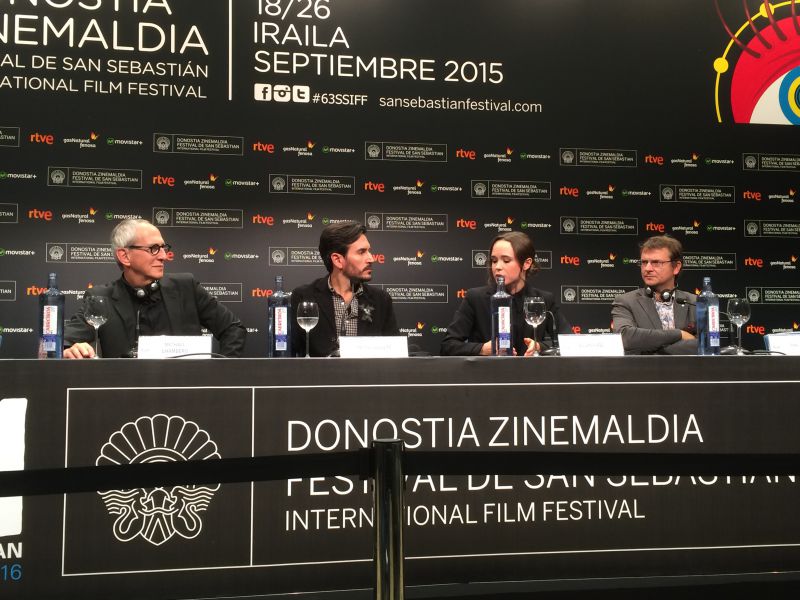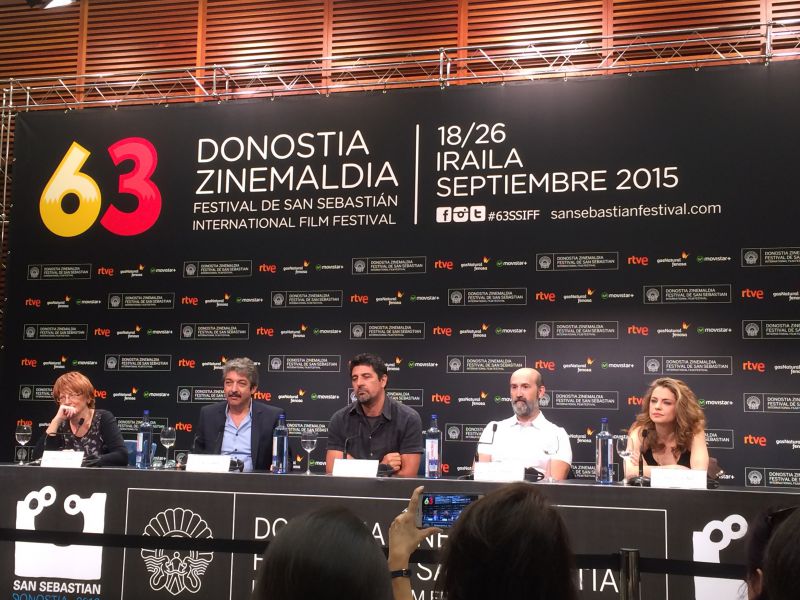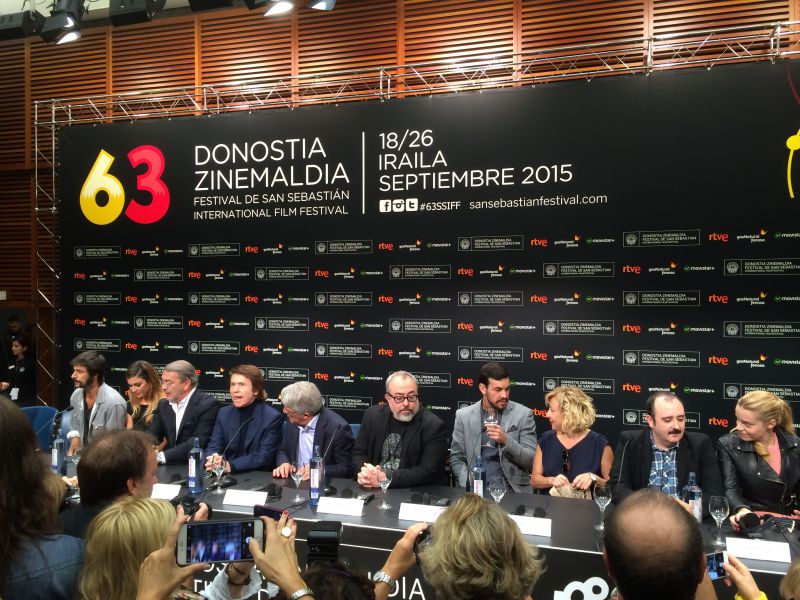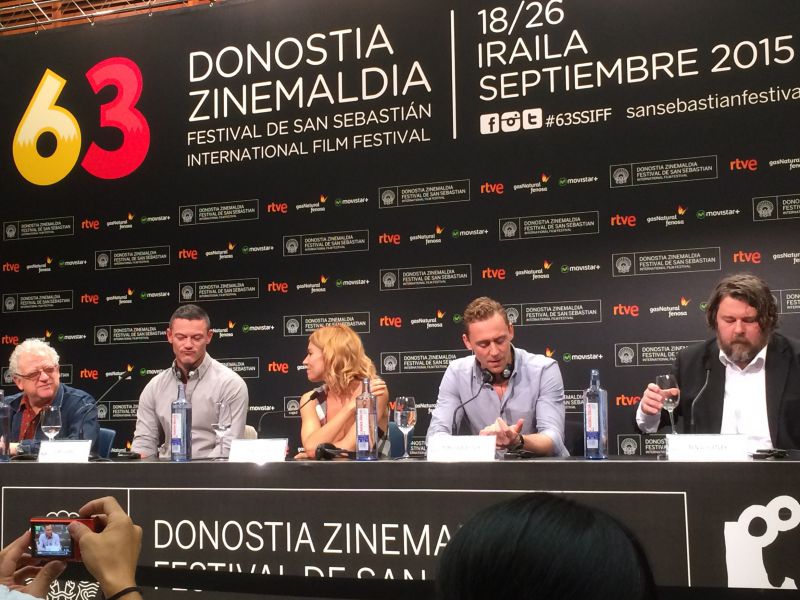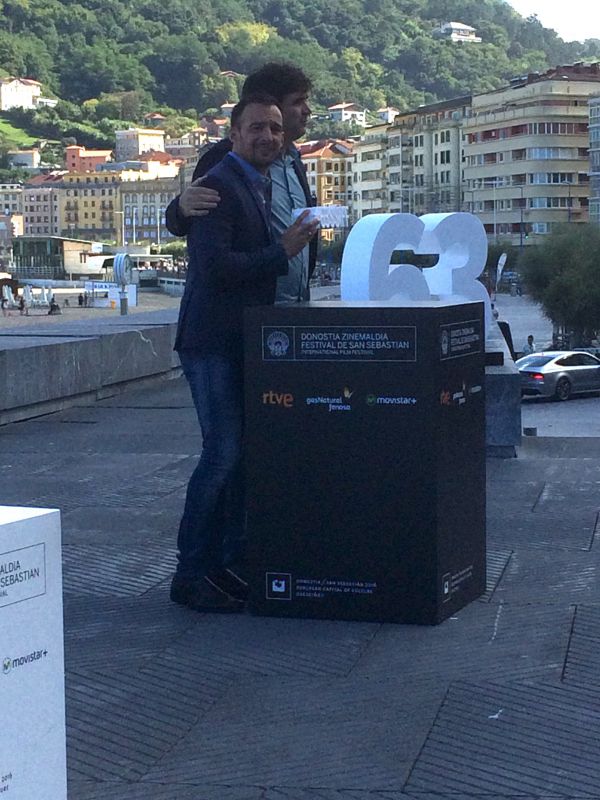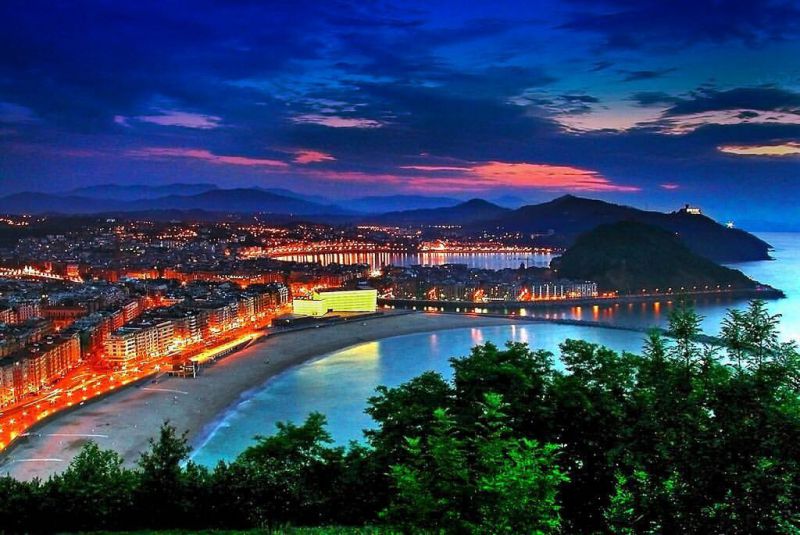|
|
||
|
Pro Tools
FILMFESTIVALS | 24/7 world wide coverageWelcome ! Enjoy the best of both worlds: Film & Festival News, exploring the best of the film festivals community. Launched in 1995, relentlessly connecting films to festivals, documenting and promoting festivals worldwide. Working on an upgrade soon. For collaboration, editorial contributions, or publicity, please send us an email here. User login |
72nd San Sebastian Festival: Klasikoak sectionKlasikoak to programme ‘The Piano’ by Jane Campion; ‘Sha Fu’, by Tseng Chuang-Hsiang; ‘Tatuaje’, by Bigas Luna; ‘Surcos’, by José Antonio Nieves Conde, and ‘Un rêve plus long que la nuit’, by Niki de Saint Phalle Trailer: https://youtu.be/PkDfVmVCIkw?si=kgS-W-OvC9Uj7uxR The restored copy of ‘Tasio’, by Montxo Armendáriz, will open the section on Saturday 21st in the Victoria Eugenia Theatre In addition to the retrospectives, one of the event’s identifying features, since 2018 the San Sebastian Festival has been retrieving classics old and new from the universal history of film. At its 72nd edition, 40 years after its premiere at the San Sebastian Festival, the film Tasio (Montxo Armendáriz, 1984), restored by the Filmoteca Vasca, will open the Klasikoak section on Saturday 21st in the Victoria Eugenia Theatre, after having been selected for the most prestigious classic film festivals: Cannes Classics at the Festival de Cannes, Cinema Ritrovato in Bologna and the Festival Lumière in Lyon, where it will screen in October. In collaboration with the Filmoteca de Catalunya, Klasikoak will screenTatuaje, primera aventura de Pepe Carvalho / Tatuaje, the First Adventure of Pepe Carvalho (Bigas Luna, 1978), the Catalan moviemaker’s first feature, based on the novel of the same name by Manuel Vázquez Montalbán, who participated in the screenplay with Bigas Luna and Josep Ulloa. In this thriller, which will close the section, starring Carlos Ballesteros, Pilar Velázquez and Mónica Randall, famous sleuth Pepe Carvalho, born from the pen of Vázquez Montalbán, investigates the death of a young boy whose body turns up on a Barcelona beach with a sentence tattooed on his arm: “I was born to revolutionize hell”. Moreover, in collaboration with the Institut Lumière in Lyon, the event will show the restored version of The Piano (Jane Campion, 1993), the New Zealand filmmaker’s iconic movie in its day which had a powerful effect on the box office and critics of the 90s. The film, which will be introduced by the director of the Institut Lumière, Thierry Frémaux, received the Palme D’or at the Festival de Cannes – the first ever going to a film directed by a woman – and three Academy Awards (for best screenplay and the performances of Holly Hunter and Anna Paquin). The director of The Power of the Dog (Perlak, 2022) tells the tale of a non-verbal woman who travels with her daughter from her native Scotland to New Zealand, where an arrange marriage awaits her. Also featuring in the selection is Sha Fu / The Woman of Wrath (Tseng Chuang-Hsiang, 1984), a classic from Taiwan’s new wave cinema in the 80s. Tseng Chuang-Hsiang (Guandong, 1947) directs the adaptation of the controversial novel Killing the Husband by the writer and feminist activist Li Ang. Set during Japan’s occupation of Taiwan and inspired by a true event, the story condemns the situation of a young girl orphaned when her mother commits suicide only to be forced by her family to wed a butcher. Another classic Spanish movie to programme in the section in collaboration with Videomercury is Surcos / Furrows (José Antonio Nieves Conde, 1951), “the first Spanish film of international standard”, in the words of the historian José María García Escudero. Nieves Conde sets the plot, adapted by Gonzalo Torrente Ballester, Nieves Conde himself, Eugenio Montes and Natividad Zaro, in the Madrid of the late 40s, where a family of rural migrants – played by Luis Peña, María Asquerino, Francisco Arenzana, Marisa de Leza and Ricardo Lucía – endeavour to start a new life in the hope of coming up in the world. Lastly, Klasikoak will present Un rêve plus long que la nuit (1976), the second and last movie from Niki de Saint Phalle. The French painter, sculptor and moviemaker, who stars in the film – with a cast also featuring her husband, the Swiss sculptor Jean Tinguely, to whom the filmmaker of last year’s retrospective, Hiroshi Teshigara, dedicated a documentary – directs a film construed with the appearance of a children’s story, where the princess navigates her journey to adulthood through a minefield of patriarchy in a phantasmagorical and surreal landscape. In the last five years, Klasikoak has programmed films including Akai Tenshi / The Red Angel (1966), by Yasuzo Masumura; Principio y fin / The Beginning and the End (1993), by Arturo Ripstein; Érase una vez... (1950), by Alexandre Cirici Pellicer and Josep Escobar; Festival en las entrañas (1963-1965) by José Val del Omar; Nueve cartas a Berta / Nine Letters to Berta (1966), by Basilio Martín Patino; Fúria espanyola / Spanish Fury (1975), by Francesc Betriu; Manicomio / Asylum (1953), by Fernando Fernán-Gómez & Luis María Delgado: Sátántangó (1994), by Béla Tarr, and Lumière! L'aventure commence / Lumière! The Adventure Begins (2016), by Thierry Frémaux, the screening of which marked the starting point of this programme. In 2024 the San Sebastian Festival and the Filmoteca Vasca have promoted a festival of classic movies extended over time and space, grouped into three seasons: the dozen or so restored films programmed in Spring by the Filmoteca at several cultural institutions throughout the Basque Autonomous Community, Navarre and the French Basque Country; the six films in the Klasikoak section announced in this press release to screen at the Festival in September; and the retrospective dedicated to the poliziesco genre, entitled Violent Italy. Italian Crime Films. This year, a season of restored short films will also be screened, which will be announced next week and will be available for viewing on the Festival dates. Klasikoak inherits San Sebastian Festival’s long-standing tradition of recovering the work of both filmmakers and the periods, subjects and languages of film in place almost since its beginnings, starting with the retrospective dedicated to René Clair in 1959, and the determined commitment of the Filmoteca Vasca both to restore films and to bring them to notice. 05.09.2024 | SanSebastian's blog Cat. : Call for entry FESTIVALS
|
LinksThe Bulletin Board > The Bulletin Board Blog Following News Interview with IFTA Chairman (AFM)
Interview with Cannes Marche du Film Director
Filmfestivals.com dailies live coverage from > Live from India
Useful links for the indies: > Big files transfer
+ SUBSCRIBE to the weekly Newsletter Deals+ Special offers and discounts from filmfestivals.com Selected fun offers
> Bonus Casino
User imagesAbout SanSebastian Barreda de Biurrun Inés Barreda de Biurrun Inés Blogging from the 71th San Sebastian Film Festival
Visit the photo gallery
|




















